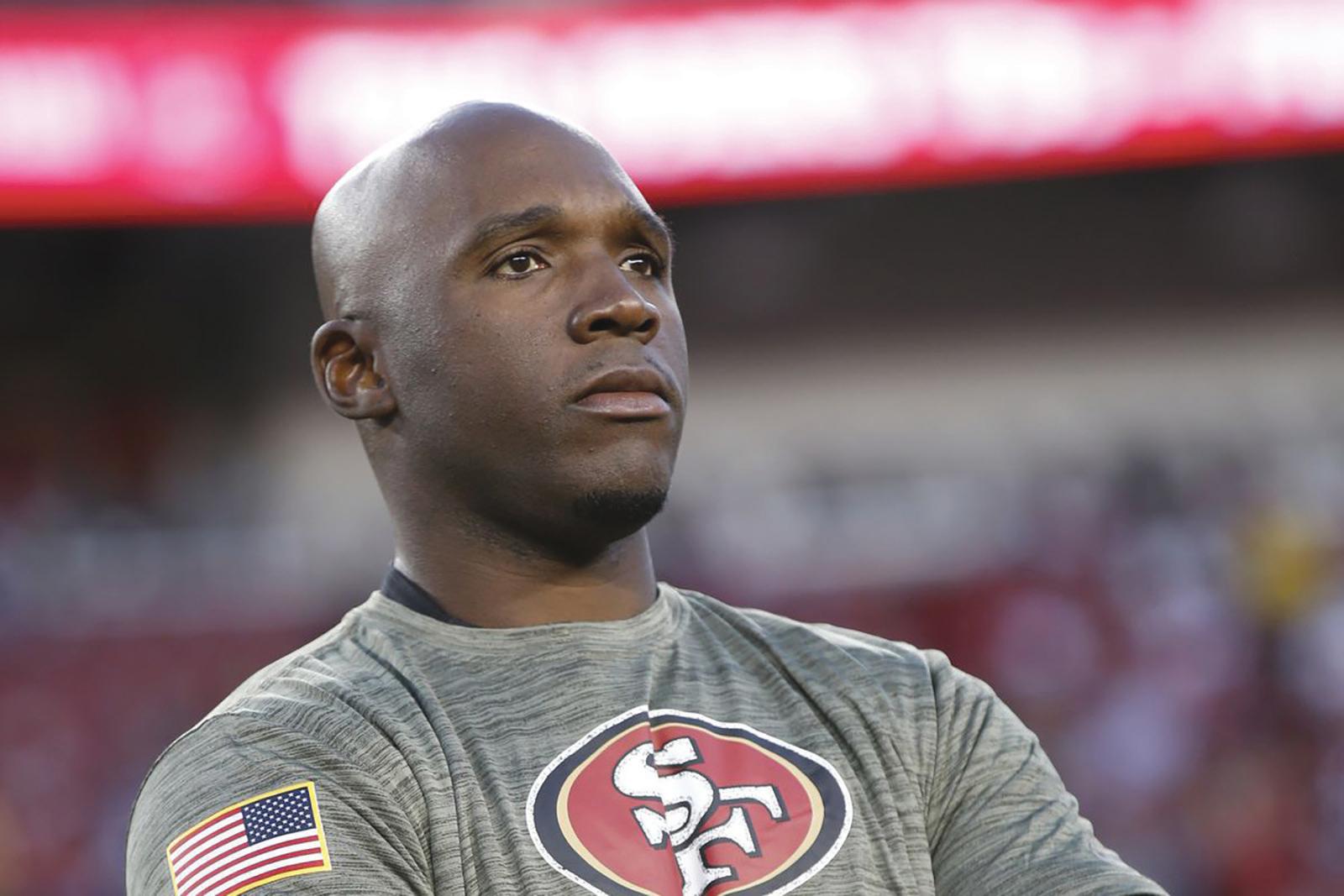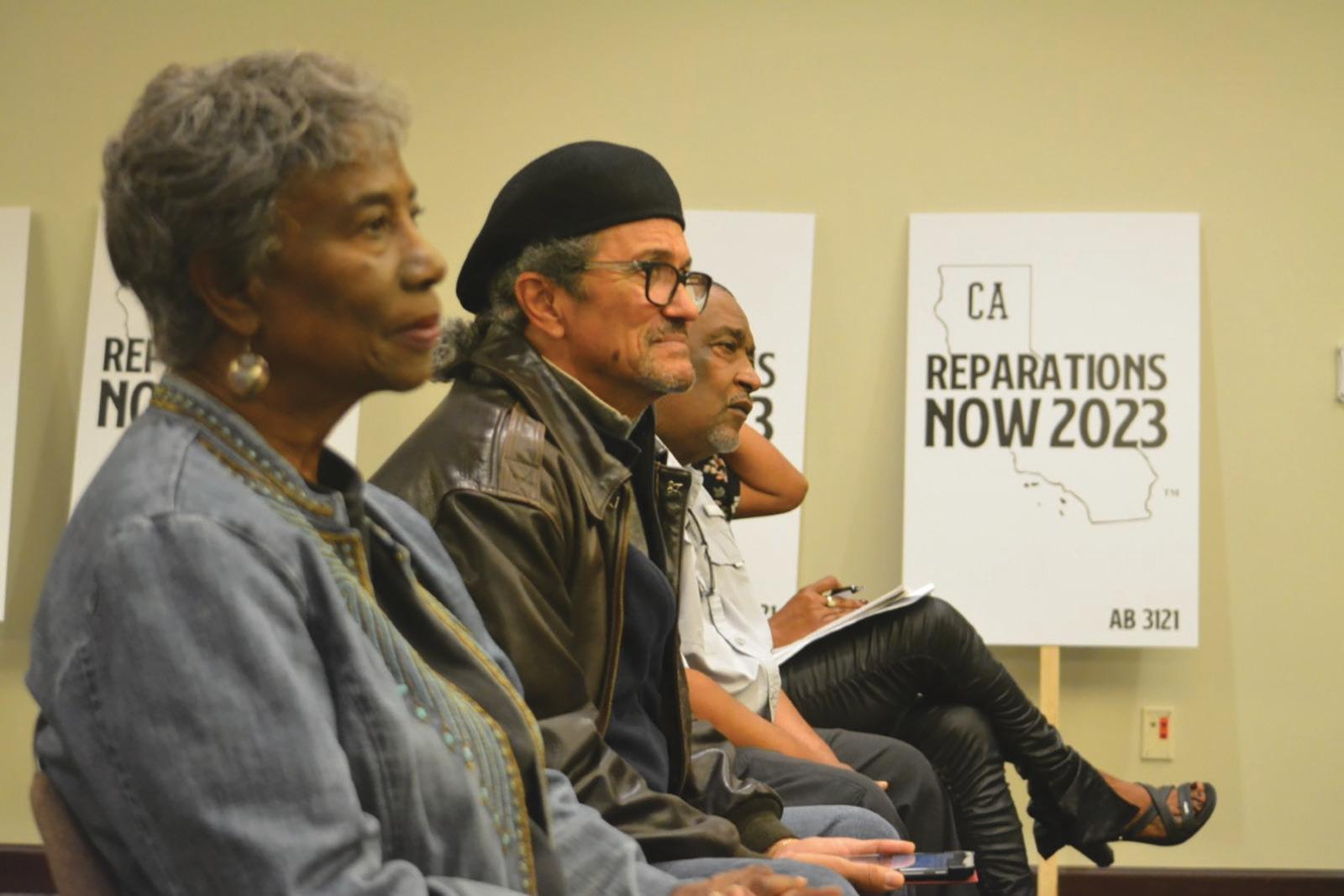
6 minute read
71 Conflicting Commands and 13 Minutes of Impossible Orders from Police to Tyre Nichols
White Supremacists Who Attacked Black DJ at Bar Sentenced
SEATTLE (AP) – Four white men with white supremacist ties were sentenced in federal court in Seattle Friday for a 2018 assault on a Black DJ at a bar in the suburb of Lynnwood.
Advertisement
Judge Richard Jones sentenced the men to varying prison terms, the Daily Herald reported.
Jason DeSimas, of Tacoma, will serve four years. Under a plea agreement, prosecutors and the defense recommended just over three years. Jason Stanley, of Boise, Idaho, had the same plea deal. Jones sentenced him to four years, as well.
Randy Smith, of Eugene, Oregon, got 31/2 years in prison. And Daniel Dorson, of Corvallis Oregon, got 2? years.

All four were previously convicted of committing a hate crime and making false statements. The man they attacked, Tyrone Smith, said outside the courthouse Friday that his life is forever changed.
The judge also ordered the defendants to pay nearly $171,000 in restitution to cover lost wages and medical bills. He called the attack that of a “modern day unhooded KKK.''
Smith said the defendants' actions changed him from an outgoing person who DJ'ed for his friends for fun, to someone who struggles with anxiety and uses a cane.
“As we can all see, it's been a long road for me,'' Smith said. “But I had enough courage to come down and make sure this process was handled and justice was actually served.''
By Stacy M. Brown
NNPA
Newswire Senior
National Correspondent
Footage from Tyre Nichols’ fatal traffic stop found that police officers issued a barrage of confusing, conflicting, and sometimes impossible to obey commands.
If Nichols did not comply, or even if he did, the police would respond with increasing force.
According to the footage analyze by the New York Times, police officers shouted a total of at least 71 orders in the roughly 13 minutes before they radioed in that Nichols was in custody.
The orders were given in two separate places: one near Nichols’ vehicle, and another where he had run to avoid being beaten severely.
The video revealed that often the officers shouted conflicting orders, making it difficult for Nichols to understand and obey.
Nichols was ordered by officers to display his hand, even as officers held the young man’s hands.
At one point, they shouted for him to get down on the ground while he was already on the ground.
And when they had his body under their control, the officers still made him change positions.
The experts agree that the actions of the Memphis police officers were a blatant illustration of a widespread problem in policing, in which officers physically punish civilians for perceived disrespect or disobedience, a phenomenon known as “contempt of cop,” the Times reported.
Professor of criminology and criminal justice at the University of South Carolina Geoffrey Alpert said, “It was far more rampant in the ‘80s when I started doing police work than in the ‘90s or 2000s.”
Before body cameras, police officers were becoming more professional and less likely to take things personally, as appeared to have happened with Nichols, Alpert stated.
Because of the potential for escalation and confusion during police encounters, modern police training typically calls for a single officer to be present at the scene to issue clear and specific commands.
It also necessitates that police officers respond professionally and proportionally to any perceived act of defiance.
The review by the Times, however, shows that the Memphis officers consistently did the opposite.
There is no evidence in the footage that the present officers did anything to prevent the excessive use of force. Actually, it seems to prove the opposite.
After Nichols attempted to flee the scene, an officer can be heard on camera saying, “I hope they stomp his ass.”
The Times noted four “crucial instances” in which police officers reprimanded Nichols for disobeying incorrect orders.
An officer is seen pulling up to the intersection where
Nichols’ car was trapped between two unmarked police cars at the start of the footage.
The cop springs out of the car, gun drawn, to join two others who are racing toward Nichols.
When one of the officers pulls Nichols out of the car, the other two immediately begin shouting, “On the ground!”These are the initial instructions in a series of contradictory directives that throw Nichols off.
Nichols notes that the police officers have ordered him to sit on the ground.
However, several officers can be heard yelling the same order with growing anger and threats of violence.
One shouts, “Get down on the ground! I am going to tase your ass.”
It appears that the officers’ tension rises when Nichols repositions himself, yet still assures the officers that he’s no threat.
“You guys are really doing a lot right now,” Nichols says. “I’m just trying to go home.”
Nichols then protests, “I am on the ground!” as officers pinned his arms down, pressed a Taser against his leg, and barked increasingly threatening words at him.
Now one of the officers gives more detailed instructions: ‘On your stomach.’
Nichols is hit in the face with pepper spray three seconds later by one of the officers.
Nichols is now surrounded by officers who demand to see his hands.
However, one of them has a hold on his left arm, while another cop has a hold on his right. The police still hadn’t made it clear how they wanted Nichols to behave.
A third officer rushes up with pepper spray.
Then he warns, “You’re about to get sprayed good.”
The other officers began punching Nichols in the face.
Nichols reacts by pulling his hands back to cover his face. As the punching gets more intense, the pepper spray is released.
Nichols again tries to reassure the officers that he is attempting to cooperate, all the while he attempts to wipe the pepper spray from his eyes.
“OK,” Nichols pleads. “All right. All right.”
While one of the officers has a firm grip on Nichols, a second officer arrives and makes the same demand: that he show his hands.
Once again, Nichols appears confused by the competing instructions. As he flails about, the police officers issue even more conflicting commands and apply more physical punishment. Again, he is hit with pepper spray.
After being pepper-sprayed three more times, Nichols is lying on his side and rubbing his eyes as two officers stand over him.
An officer then kicks Nichols in the face.
At this point, Nichols is barely conscious or coherent, but the police are treating him as though he is actively resisting them.
“Lay flat, goddamn it,” one officer yells.
As he lies there, Nichols groans and writhes in pain, having repeatedly been tased, kicked in the head, punched, and pepper sprayed. When another officer yells, “Lay flat!” they behave as if Nichols is refusing to comply.
One officer lifts Nichols off the ground and forces him to kneel by grabbing his handcuffed arm. Another officer then repeatedly hits him with a baton while demanding, “Give us your hands!” He tries to avoid being hit with the baton as he is surrounded by four police officers.
“Give me your [bleeping] hands!” another officer demands.
But Nichols, because of having an officer pin his arms behind his back, another grip his handcuffed wrist, and a third punch him in the face, simply cannot comply.
He collapses to the ground and cries for his mom, but the brutality continued.
In total, six officers have been dismissed and five stand accused of second-degree murder. In a press conference last week, attorneys for two of them said their clients would be entering not guilty pleas.
On Dec. 7, 2018, DeSimas and others traveled to Lynnwood on the way to visiting the site of a Whidbey Island cabin where Robert Jay Mathews, the neo-Nazi leader of the violent hate group The Order, died in a gunfight with federal agents on Dec. 8, 1984. It has become a far-right holiday, known as Martyr's Day.
That night, DeSimas attended a gathering with other white supremacist sympathizers, prosecutors said. Shortly after midnight, about a dozen of them went to the Rec Room Bar and Grill. Some wore jackets with patches indicating their white supremacist beliefs and some had similar tattoos, including some depicting swastikas, prosecutors said.
At some point, Stanley messed with Smith's DJ equipment. Smith pushed him away. In response, DeSimas and others surrounded Smith, using racist slurs while kicking, punching and stomping on Smith, prosecutors said. Witnesses who tried to intervene were also attacked.
The men then left the bar and went to Whidbey Island, where they attended the Martyr's Day event.
Federal prosecutors indicted the men in December 2020. Citing insufficient evidence, Snohomish County prosecutors declined to charge six other men who were at the tavern the night of the attack.
DeSimas wrote in a letter to the judge that he was “ashamed'' of his actions, saying he no longer shared the views he previously held.
Dorson wrote in a similar letter that he was “disgusted by the fear I took part in creating.''
Nick Brown, the U.S. Attorney for Western Washington, said seeking consequences for the attack was a high priority for the Justice Department and the FBI.
Rick Collodi, the FBI's special agent in charge of Seattle's field office, said the defendants tried to conceal their actions, but the truth came out.
“The four defendants admitted to being members of a white supremacist group,'' Collodi said. “While they have the right to believe what they want, they do not have the right to commit a crime.''








